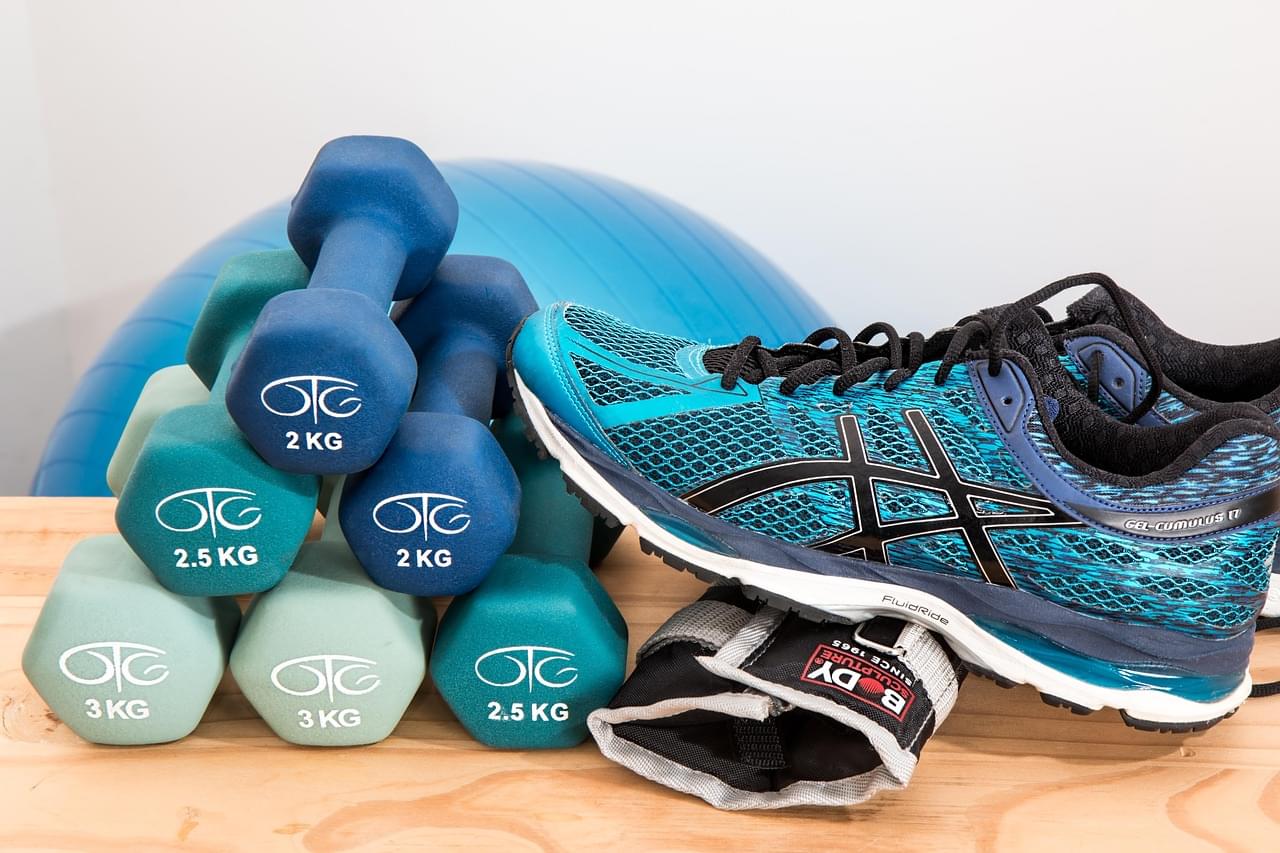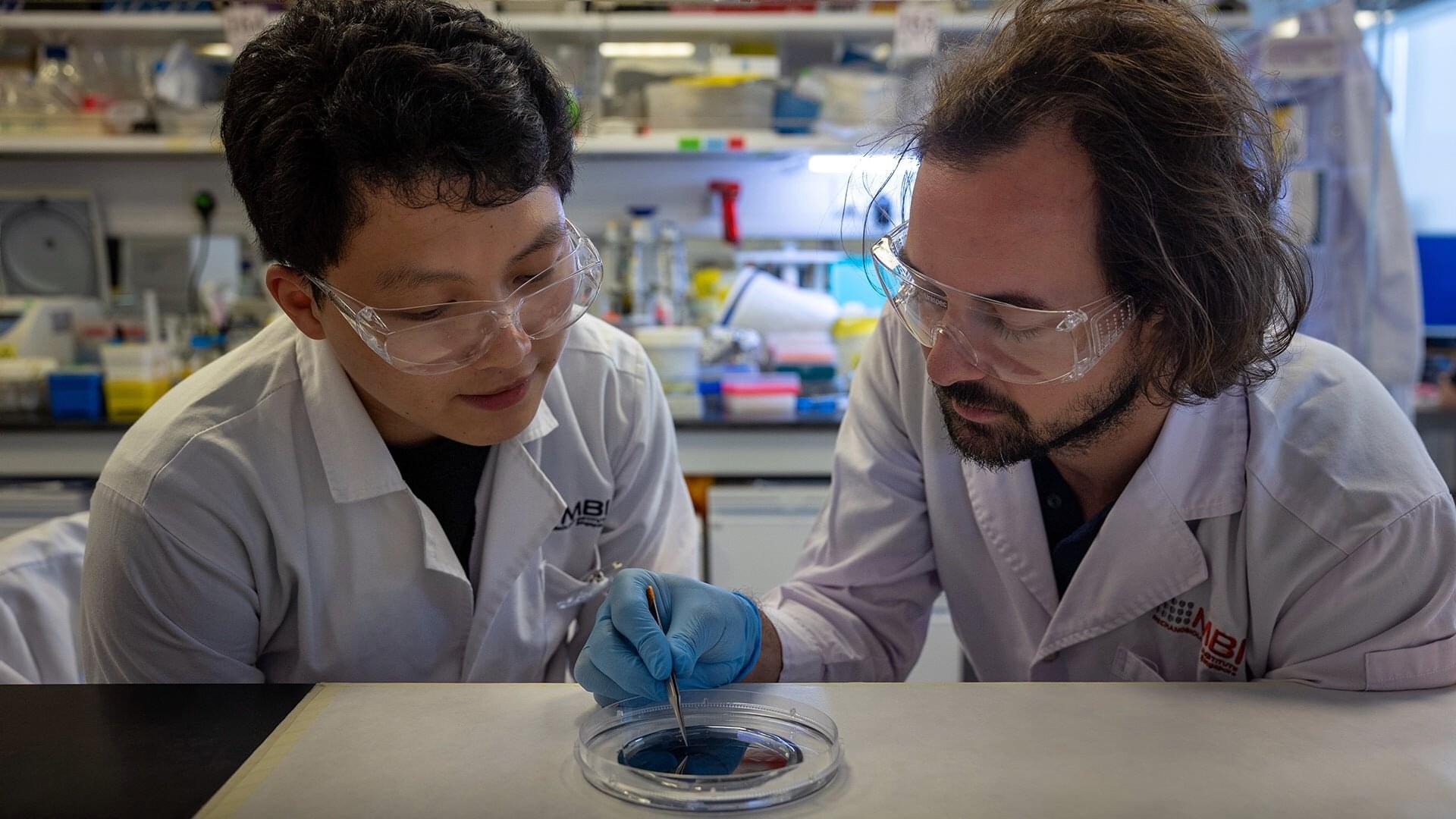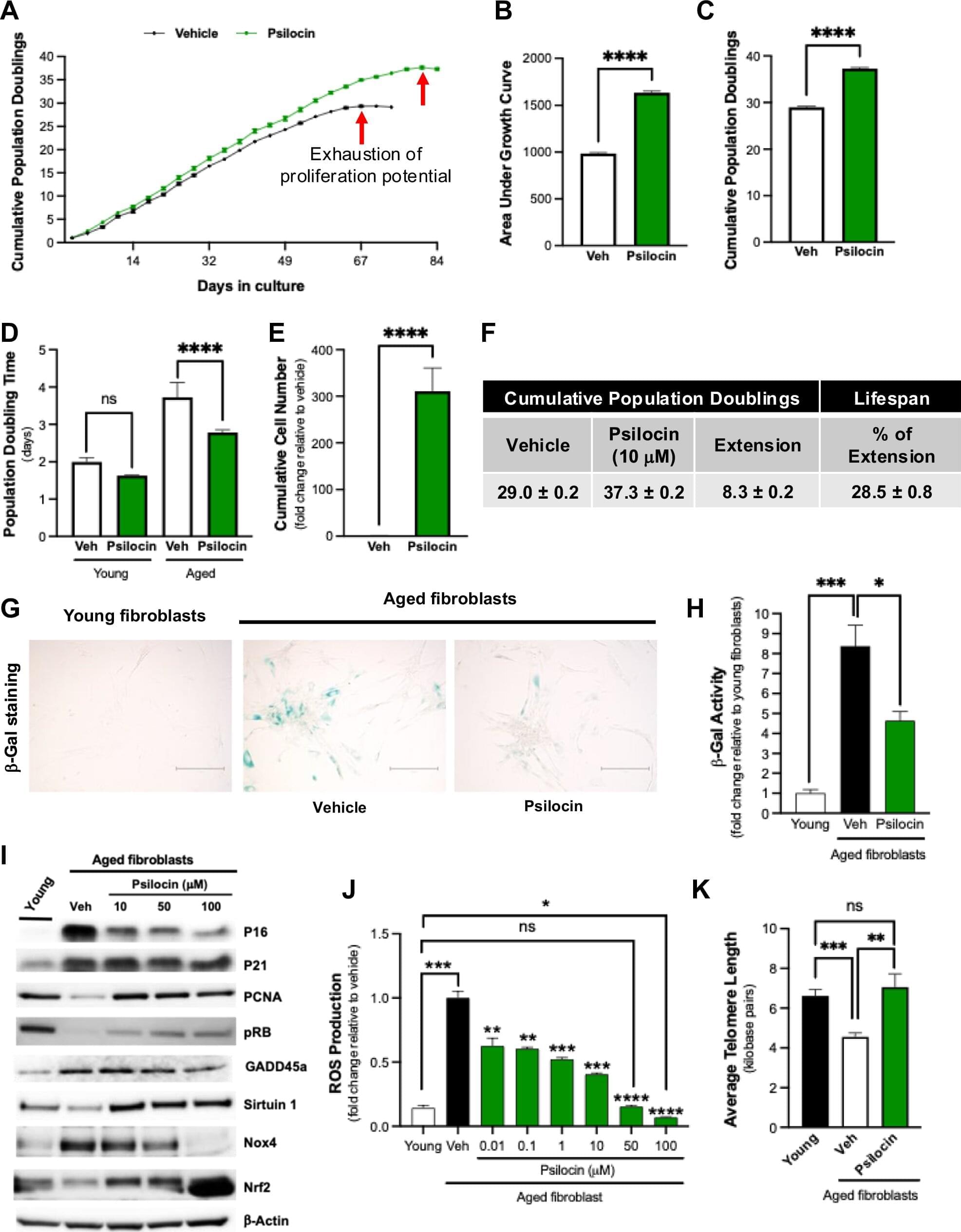The overlooked combo that protects your heart, builds muscle, and slows aging, at any age.


Scientists have discovered SB000, a single gene that reverses cellular aging by 13.6 years — matching or exceeding the rejuvenation power of the famous Yaman…

Exercise is extremely important, especially if we don’t move around much at work. There are plenty of apps and watches that can tell us when to move and be active. Primary care physicians emphasize exercise as a preventive measure against symptoms of aging. We are told that consistent exercise with a healthy diet is crucial for a high quality of life. As a result, we are all trying new diets and exercise routines to improve our health. Interestingly, there are specific regimens for individuals at different stages of life. Even cancer patients are encouraged to maintain as much of an active lifestyle as possible. However, how much does exercise really affect our health in cancer? Couldn’t we just each healthier?
A research group at the University of Pittsburgh discovered that exercise directly alters gut microbes which improve anticancer immunity. The paper published in Cell, by Dr. Marlies Meisel, Catherine Phelps, and others, demonstrated the mechanism that occurs in the gut after exercising. Meisel is an Assistant Professor in the Department of Immunology at the University at Pittsburgh. Catherine Phelps is a talented graduate student in the Meisel Lab and first author on the publication. Meisel’s research focuses on the mechanisms of the microbiota and its effect on systemic immunity. Specifically, she works to understand the role of the microbiome in the context of cancer and autoimmune disorders to improve therapeutic outcomes.
Previous work in the field demonstrated that exercise improves cancer therapy. Additionally, it was known that exercise changes the gut microbiome, which includes various bacteria that is helpful to the body. However, there was a gap missing between these two findings. Meisel and her team set out to understand how these two ideas were linked. Specifically, they wanted to know how exercise changes the gut microbiome to improve cancer immunotherapy. Catherine and other researchers in the Meisel Lab had mice exercise for four weeks in one group and had another group that did not exercise. When they implanted tumors, they found that the mice that exercised had smaller tumors compared to the no-exercise group. However, when researchers conducted the same experiment with mice that were germ-free or treated with antibiotics to eliminate the gut microbiome, they lost the change in tumor growth.

A blood-test analysis developed at Stanford Medicine can determine the “biological ages” of 11 separate organ systems in individuals’ bodies and predict the health consequences.
NASA’s Mars Reconnaissance Orbiter (MRO) is a long-running spacecraft mission dedicated to studying the Red Planet from orbit. Launched in 2005 and managed by NASA’s Jet Propulsion Laboratory (JPL) in Southern California for the agency’s Science Mission Directorate, MRO is part of NASA’s broader Mars Exploration Program. It plays a key role in analyzing Mars’ surface, atmosphere, and subsurface using a suite of advanced instruments.
One of MRO’s standout tools is SHARAD (Shallow Radar), which probes beneath the Martian surface to detect features like ice and rock layers. Provided by the Italian Space Agency and operated by Sapienza University of Rome, SHARAD is a collaborative effort analyzed by a joint U.S.-Italian science team, with U.S. participation led by the Planetary Science Institute in Tucson, Arizona.
Lockheed Martin Space, based in Denver, built the orbiter and continues to support its operations, ensuring the spacecraft’s longevity and scientific productivity well into its second decade.


What’s good for your aging gut may also be good for your aging brain. The first study of its kind in twins found that taking daily protein and prebiotic supplements can improve scores on memory tests in people over the age of 60.
Published early last year, the findings are food for thought, especially as the same visual memory and learning test is used to detect early signs of Alzheimer’s disease.
The double-blinded trial involved two cheap plant fiber prebiotics that are available over the counter in numerous nations around the world.
Discover how MitoQ reverses vascular aging by 15–20 years! Chief Scientific Officer Dr. Mitchell reveals research on mitochondrial health, showing 42% improvement in blood flow and superior results vs CoQ10 for longevity.
Some links are affiliate links so we will earn a commission when they are used to purchase products.
If you would like to support our channel please consider joining our Patreon / modernhealthspan.
MitoQ https://tinyurl.com/5n93fm3f MitoQ Pure https://tinyurl.com/3hxy9s7x.
Stemregen 15% discount Code MODERN https://tinyurl.com/45z968yr (Only available in the US)
AX3 Life Astaxanthin 20% discount code MODERN20 https://tinyurl.com/2t3w26nw.
All Muse devices 15% discount code MODERN https://choosemuse.com/MODERN
Renue By Science 10% discount code MHS: https://tinyurl.com/bdew4bfs.
NMN Powder https://tinyurl.com/syc7rwkh.
DoNotAge 10% discount code MHS https://tinyurl.com/6dbvhv87
D3/K2 https://tinyurl.com/528z26b7 NMN https://tinyurl.com/wyzj2f3d.
n1o1 Nitric Oxide 10% discount with code Modern https://tidd.ly/3IczGRW
15% off with code PRIME15 until July 12
n1o1 Nitric Oxide Lozenges https://tidd.ly/4eaJTdw.
Age-Defiance Face Cream https://tidd.ly/4eaJTdw.
Wellness Extract 10% discount Code MODERNWE Geranylgeraniol Essential http://wellnessextract.com/RICHARDWE Delta Gold Vit E
Oxford Healthspan Spermidine 15% Code MHS
Original https://tinyurl.com/hrxfnzpn, Gluten Free https://tinyurl.com/2s39pkzv.
Nuchido Time+ 20% discount of first purchase with code MODERN20 https://nuchido.com/MODERN
Pendulum 20% Discount Code HEALTHSPAN
Akkermansia https://pendulumtherapeutics.sjv.io/b… Daily https://pendulumtherapeutics.sjv.io/N… OmegaQuant 5% discount Code MODERN https://omegaquant.com/shop/ OneSkin 15% Discount: Code MODERN OS-01 Face https://oneskin.pxf.io/Z6Yg0K In this comprehensive interview, Dr. Mitchell, Chief Scientific Officer at MitoQ, breaks down the revolutionary science behind mitochondrial-targeted antioxidants and their impact on aging and disease prevention. *Key Topics Covered:* • How MitoQ delivers 90% bioavailability to mitochondria vs 10% for regular CoQ10 • Clinical study showing 42% improvement in flow-mediated dilation (vascular function) • Why mitochondrial dysfunction is the root cause of aging diseases • Exercise performance benefits: improved VO2 max, peak power, and recovery • Brain health and cognitive function improvements • Cardiovascular benefits: reduced oxidized LDL, improved artery flexibility • Immune system support and inflammation reduction • Diabetes prevention through improved glucose metabolism • Proper dosing protocols and supplement combinations *Research Highlights:* ✓ 25+ clinical studies and 800+ research papers ✓ Reverses vascular aging by 15–20 years according to leading researcher Doug Seals ✓ Professional cyclists and elite athletes using MitoQ for performance ✓ Ongoing trials for frailty, cognitive function, and neurovascular health ✓ 300+ independent researchers studying MitoQ applications Learn why targeting mitochondria may be the key to preventing age-related diseases and optimizing healthspan. Discover the science-backed approach to cellular energy and antioxidant protection that’s changing how we think about aging. ⏲️Chapters 0:00 The problem with mitochondria 3:34 How Mitochondria Dysfunction Occurs with Aging 5:43 Natural Protective Mechanisms and CoQ10 7:38 The Invention of MitoQ — Superior Mitochondrial Targeting 11:15 How MitoQ Differs from CoQ10 13:31 MitoQ vs CoQ10 — Research Comparisons 17:52 Cardiovascular Benefits and Flow-Mediated Dilation 23:32 Heart Muscle Function and Immune System Effects 28:16 Exercise Performance and V2 Max Improvements 32:04 Research Funding and Collaborative Programs 36:11 Diabetes Prevention and Glucose Metabolism 39:02 Brain Health and Cognitive Benefits 44:23 Dosing Protocol and Administration Guidelines 48:04 Supplement Combinations and Future Directions 🌐Links in this video MitoQ Home page https://www.mitoq.com/ Mitochondrial Collaborative Research Program https://www.mcrp.dev/ *************************************** Health claims Disclosure: Information provided on this video is not a substitute for direct, individual medical treatment or advice. Please consult with your doctor first. Products or services mentioned in this video are not a recommendation. Audio Copyright Disclaimer Please note that we have full authorization to the music that we used in our videos as they were created using the service WeVideo which provides the rights to the music. The rights are detailed in the terms of use that can be reviewed here https://www.wevideo.com/terms-of-use and any following inquiries should be addressed to [email protected]. ************************************************ #MitoQ #Mitochondria #Longevity.
Metabolic Daily https://pendulumtherapeutics.sjv.io/N…
OmegaQuant 5% discount Code MODERN https://omegaquant.com/shop/
OneSkin 15% Discount: Code MODERN OS-01 Face https://oneskin.pxf.io/Z6Yg0K
In this comprehensive interview, Dr. Mitchell, Chief Scientific Officer at MitoQ, breaks down the revolutionary science behind mitochondrial-targeted antioxidants and their impact on aging and disease prevention.
*Key Topics Covered:*
• How MitoQ delivers 90% bioavailability to mitochondria vs 10% for regular CoQ10
• Clinical study showing 42% improvement in flow-mediated dilation (vascular function)
• Why mitochondrial dysfunction is the root cause of aging diseases.
• Exercise performance benefits: improved VO2 max, peak power, and recovery.
• Brain health and cognitive function improvements.
• Cardiovascular benefits: reduced oxidized LDL, improved artery flexibility.
• Immune system support and inflammation reduction.
• Diabetes prevention through improved glucose metabolism.
• Proper dosing protocols and supplement combinations.
*Research Highlights:*
✓ 25+ clinical studies and 800+ research papers.
✓ Reverses vascular aging by 15–20 years according to leading researcher Doug Seals.
✓ Professional cyclists and elite athletes using MitoQ for performance.
✓ Ongoing trials for frailty, cognitive function, and neurovascular health.
✓ 300+ independent researchers studying MitoQ applications.
Learn why targeting mitochondria may be the key to preventing age-related diseases and optimizing healthspan. Discover the science-backed approach to cellular energy and antioxidant protection that’s changing how we think about aging.

In a discovery that could reshape approaches to regenerative medicine and bone repair, researchers have found that human stem cells can be prompted to begin turning into bone cells simply by squeezing through narrow spaces.
The study suggests that the physical act of moving through tight, confining spaces, like those between tissues, can influence how stem cells develop. This could open new possibilities for engineering materials and therapies by guiding cell behavior using physical, rather than chemical, signals.
The research was led by Assistant Professor Andrew Holle from the Department of Biomedical Engineering in the College of Design and Engineering at the National University of Singapore (NUS), and the Mechanobiology Institute (MBI) at NUS, and was published on 8 May 2025 in the journal Advanced Science.

A compound found in psychedelic mushrooms may have antiaging properties. Researchers at Baylor College of Medicine have found that psilocybin, the active compound in psychedelic mushrooms, may extend both cellular and organismal lifespans.
The findings, published in the journal npj Aging, show that psilocybin reduced multiple hallmarks of aging in cells while also improving survival in aged mice.
“There have been a number of clinical studies that have explored the therapeutic potential of psilocybin in psychiatric conditions such as depression and anxiety; however, few studies have evaluated its impacts outside the brain,” said Dr. Louise Hecker, associate professor of medicine— cardiovascular research at Baylor and senior author of the study.